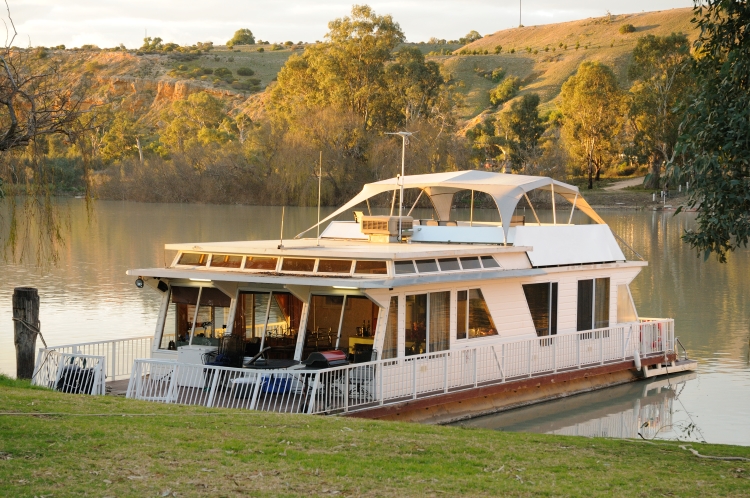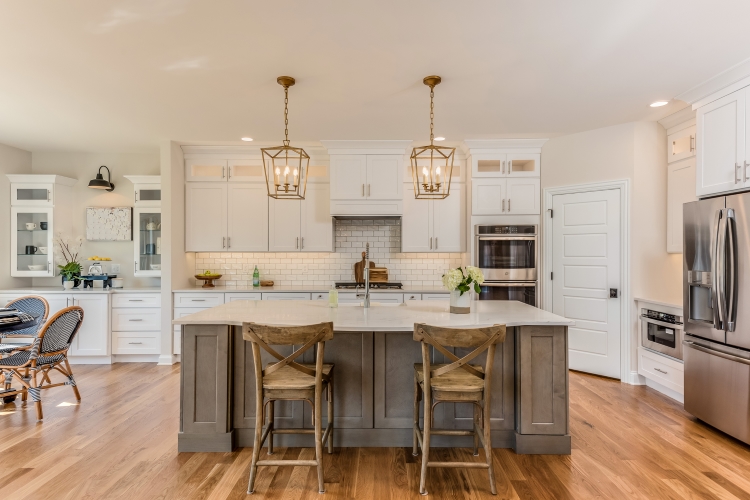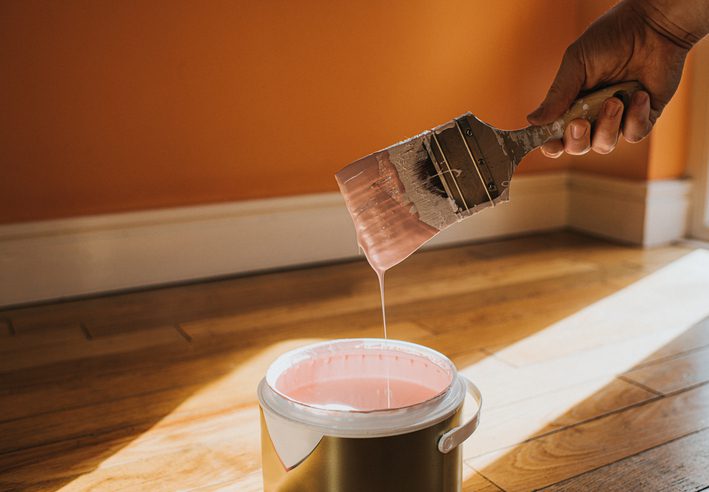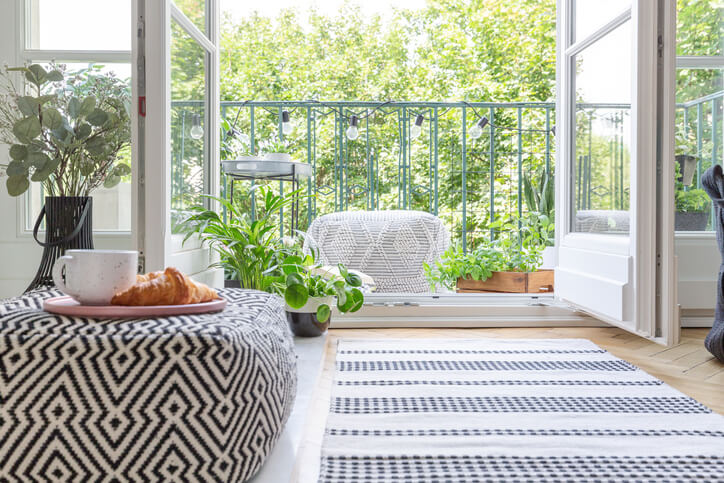Although finding a new home is exciting, it can be quite a task to decide between the many types of housing available. If you’re ready for a major change to your living quarters, whether it’s due to a milestone like retirement or just a love of adventure, you might be thinking about moving. The range of choices can be overwhelming, and because each has its own benefits and costs, what’s perfect for your friends or relatives might not work for you. To help you with your house- (or condo- or apartment-) hunting, here are some pros and cons of several popular housing options.
Condo
Pros: When you buy a condo, you own the inside of your unit and share ownership of the building’s exterior and grounds. Paying HOA fees means that you and the other owners won’t have to vacuum the hallway or shovel the parking lot yourselves.
Cons: Like renters in apartment buildings, condo owners often find themselves in proximity to nosy, noisy, or simply annoying neighbors. But unlike renters, condo dwellers can’t complain to their landlord or simply decide to move at the end of the month or year. (And although exterior maintenance will be taken care of, damage to your unit is your responsibility, which is why condo insurance exists.)
It depends: Many condos come with an existing social scene, shared areas like common rooms or gyms, and board meetings. Whether this sounds like fun or torture will depend on your personality and expectations.
House
Pros: A few major pros of buying a single-family home are privacy, space, and the ability to do whatever you want in terms of decorating or remodeling. Though there may be some exceptions in historic districts or neighborhoods with strict Homeowners Associations (HOAs), living in a detached house, for many people, equals freedom.
Cons: Unlike some other types of housing, owning a house means that you’re very much on your own when it comes to upkeep, repairs, and emergencies. And although a good homeowners insurance policy can cover the cost of some emergencies, you’ll still have to maintain your home yourself, or hire trustworthy people to do that work for you.
It depends: For the most part, houses come with yards—and driveways, sidewalks, and other outdoor areas. For some, this is the main reason for choosing a house: There’s room for children, grandchildren, or pets to play, and room to put in a pool, patio, or garden. But for others, maintaining a property is time-consuming, unpleasant, or physically difficult.
Houseboat
Pros: There’s no denying that a houseboat, no matter how fancy it is or where it’s docked, has a certain cool factor. And if you love the water, you can’t do any better than a house that’s literally on it.
Cons: Similar to traditional houses, houseboats can come with a lot of expenses—but these will certainly be different and perhaps unexpected compared to traditional houses. Insurance coverage can be expensive, and then there are mooring fees, plus the cost of storing any belongings you want to keep on land. Houseboats, like all boats, need a good deal of upkeep, too—and although you won’t have to mow a lawn, you will have to clean your hull.
It depends: If you live on a houseboat, you’ll be closer to the elements. You’ll have to get used to the waves rocking beneath you. Whether you own a non-cruising “floating home” or a cruising “bluewater” houseboat, you’ll need to comply with a barrage of local, state, and federal laws—not to mention Coast Guard regulations—that will likely be unfamiliar if you haven’t lived on the water before. To many house-hunters, this is more trouble than it’s worth; to a select few, the possibility of fishing right from your living room makes it worth the effort.
Recreational Vehicle (RV)
Pros: The attraction to full-time RV life, for most, comes from the lure of the open road. Living in an RV is like taking a permanent road trip. You can move on when it gets too cold, when you tire of your neighbors in the RV park, or when you want to gaze out at a different landscape.
Cons: Having flexibility doesn’t mean that RV life is simple. As with a houseboat, you’ll need to consider the cost of insuring an RV. And there are other aspects of a mobile life that can become complicated: You must select a home state, or domicile, for your legal address in order to register your RV, forward your mail, and even vote. And you need to carefully plan your route (You can’t fit a bulky RV everywhere you can a car or a truck.) and where you’ll stay each night (Options range from public land to luxury RV parks.).
It depends: There are many ways to live full-time in an RV. Some RVers park rent-free for half the year in a friend’s driveway; others live in different states for months at a time; still others are constantly on the move. Some maintain a home base, like a relative’s house, for legal and storage purposes; others give up all old conveniences for new challenges. How you live in an RV, and whether you find it freeing or stressful, will depend not only on your temperament, but also on how attached you remain to your former, less portable life.
Rental
Pros: For many people, the best parts of renting are the fact that someone else is responsible when the refrigerator dies or the pipes leak and the freedom to up and move with relatively little stress.
Cons: Renting also comes with downsides, like a neighbor who slams doors and smokes, or a management company that doesn’t respond to complaints. Plus, depending on your location and the type of building you live in, the population of renters can skew younger; even a great apartment can feel more like a college dorm when you’re surrounded by twentysomethings.
It depends: The financial advantages of renting versus buying a property—as well as the requirements for securing a lease—can vary greatly depending on your location. In one city, renting an apartment might be the best use of your money, even after you take into account related expenses like renters insurance; in another city, you might feel that high rent means throwing money away and that buying is a great investment. When you evaluate your financial wants, needs, and preferences, don’t listen to general financial advice but seek out information tailored to your region and situation.
Townhouse
First, a note about terminology: If you’re considering buying a townhouse, be aware that the terms “townhouse,” “town home,” and “row house,” though sometimes used interchangeably, can refer to very different physical and financial arrangements. This can depend on the region, the preference of an insurer, builder, or housing organization, the history of the property, or the marketing strategy used to sell the home.
Sometimes, a townhouse is technically a condo. Other times, a townhouse is one of several similar homes built in a row that shares side walls with its neighbors. To make matters even more complicated, a townhouse can refer to either a historic property built as a second home in the city for a family who lived primarily in the country, or a unit in a new development of houses. And living in a townhouse could mean that an HOA is responsible for making decisions and maintaining rules in the development or the neighborhood.
It’s important to learn how these terms are used in your area or in individual developments or neighborhoods, and what that means for you as a potential buyer. For this article, let’s define a townhouse as a relatively narrow house, with two or more stories and a relatively small (or nonexistent) yard, that’s attached to the neighboring houses.
Pros: Townhouses share many of the pros associated with typical single-family houses. In addition, because they usually have a smaller footprint and less yard to take care of, they can be a good option for an individual or couple wishing to downsize.
Cons: Even if you and your neighbors own your townhouses and the land they stand on, shared walls and roofs mean that you’ll have more restrictions and obligations than you would in a typical single-family house. Whether there’s an HOA or another type of contractual agreement, there’ll likely be rules about everything from clotheslines to construction.
It depends: Whether town homes are found in historic districts or newly built developments, they often come with a sense of pride in the neighborhood and a tight-knit community feel. In places like this, you’ll likely be in frequent, close contact with others who live on your street. This lifestyle will seem ideal to some homebuyers but a bit too stifling to others.
Make Any House a Home
When deciding what type of home to move to next, take your time to thoroughly research the alternatives and make the choice that feels right for you. And remember that the arrangements listed above are just some of the possibilities. From duplexes to tree-houses to yurts, there are probably even more options than you realize.







The part of your article that states that having one’s own house allows for any kind of decoration really caught my interest. As someone who really loves decorating things to my own personal tastes, I always dreamed of having my own space to live in. After spending most of my life in an apartment flat shared with other people, getting to do my own thing really excites me, so I’ll definitely look for an agent that can provide me with a good home that I can stay in and maybe raise a family at in the future.
My mother will retire soon, and one of her goals is to sell her luxury home and move to a smaller place. I’m glad you shared this; I’ll make sure to inform her that a single-family home will provide her, the privacy and space that she’s been craving for. Although I agree with you that maintaining a home could be time-consuming, but maybe she’ll find this more convenient compared to living in a houseboat. https://cherylr.com/buyers/
hi there I really like the blog you have set up here. Thanks and keep up the great work!
I like that you said that a few major pros of buying a single-family home are privacy, space, and the ability to do whatever you want in terms of decorating or remodeling. My husband and I are thinking about buying a new place to retire in so that we can simplify our life a little bit and have a place that we are comfortable in and to spend our retirement in. I think that a single-family home would be nice because we could personalize it more and we also wouldn’t have to worry about bothering anybody if we had grandkids come over that were being loud.
do you insure manufactured homes
Hello- The Hartford does not insure mobile or manufactured homes.
Thanks for pointing out that a townhouse is a good option if you’re looking to downsize since they have a smaller footprint and less yard to maintain. My husband and I want to move to a smaller home to save money now that our kids have all moved out. A townhouse seems like a good option for us, so I’ll definitely consider it as an option!